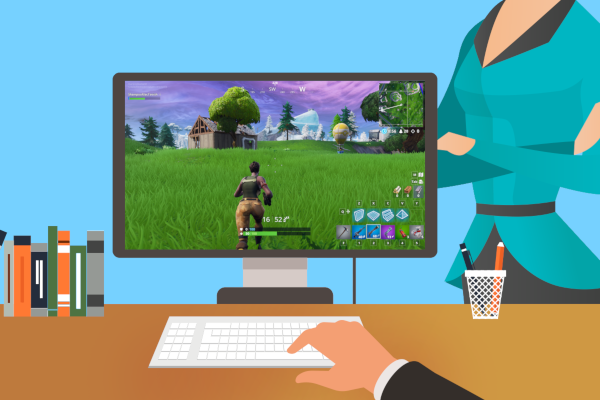
This article shares things employees should avoid doing on work computers, whether they are working remotely or in the office. These tips help both you and your work control security and data access.
Working from home tends to blur the line between professional and personal time and employees may grow even more relaxed about what they do on their work computer so this article will apply even more to remote workers!
What to avoid doing when working remotely
1) Log in to an unprotected network
If you have a business laptop you are more flexible and you may decide to work one day in a coffee shop and the next in a public park. In doing so though, never connect to a public Wi-Fi network. Public Wi-Fi networks are unencrypted and you never know who maybe spying or collecting data you send to the network.
If you absolutely must use a public network, add a layer of protection by using a virtual private network (VPN). This can help shield your browsing from anyone monitoring your online activity.
2) Save personal files
You spend so much time on the work computer and you may want to get a few personal things done during the day. As such you may even start saving personal files onto the computer.
This is not a good idea, because personal data could get automatically backed up to the cloud with the work files. While cloud backup is good practice for the business, you have now lost control of your personal information. Plus, if you leave the job, you lose access to that computer and don’t know who may access those personal files.
3) Let family and friends surf the Web
Working from home changes the office environment. People want to look something up, or kids need to submit schoolwork online. Since your work computer is right there, why shouldn’t they use it? The main issue is that they could expose or accidently delete proprietary business data or sensitive information.
They may also inadvertently break the computer or cause other issues with the computer itself.
What to avoid doing when in the office
1) Stream personal entertainment
You have a break, or things are slow, so what is the harm in catching up on your favourite TV show at work or checking out some YouTube videos?
In fact, you could be making it more difficult for your colleagues to do their work as streaming takes up bandwidth. All internet connections have a fixed limit on their internet bandwidth, so while you are laughing at a video, others may be struggling to download a document or their video call with an important client keeps dropping out.
2) Download attachments from unknown parties or click on unrecognized links
Yes this is something everyone should know by now and applies to both work and personal computers. Cybercriminals constantly prey on human error to gain illicit access to business networks so don’t be the weak link in your company’s security posture.
Also, avoid visiting non-work-related websites. You are much more likely to visit a site that contains malware if you are surfing the web for personal use at work.
3) Download software without first asking IT
You might have a favourite application, but the business computers don’t have the software you are familiar with. Deciding to download it to your own computer seems safe enough as it is a well known software brand and it is not like one of those shady downloads from the point above.
Yet downloading software to a work computer can cause problems. For instance is the website you are downloading it from legitimate, does the software cause issues on the work systems or are there any licensing or compliance issues that the company needs to address?
These six things should be avoided if you are using a work computer. Yes there are also many other things such as playing games, browsing NSFW websites etc but the above lists some of the other not obvious things not to do!
It doesn’t matter where you’re working as you still need to be thinking of cybersecurity and productivity for you, your work colleagues and your business.
Do you need help knowing what your employees are doing with work computers on- or off-site? A proactive IT support provider can help. Learn more about remote monitoring and other helpful tools. Contact us today.
